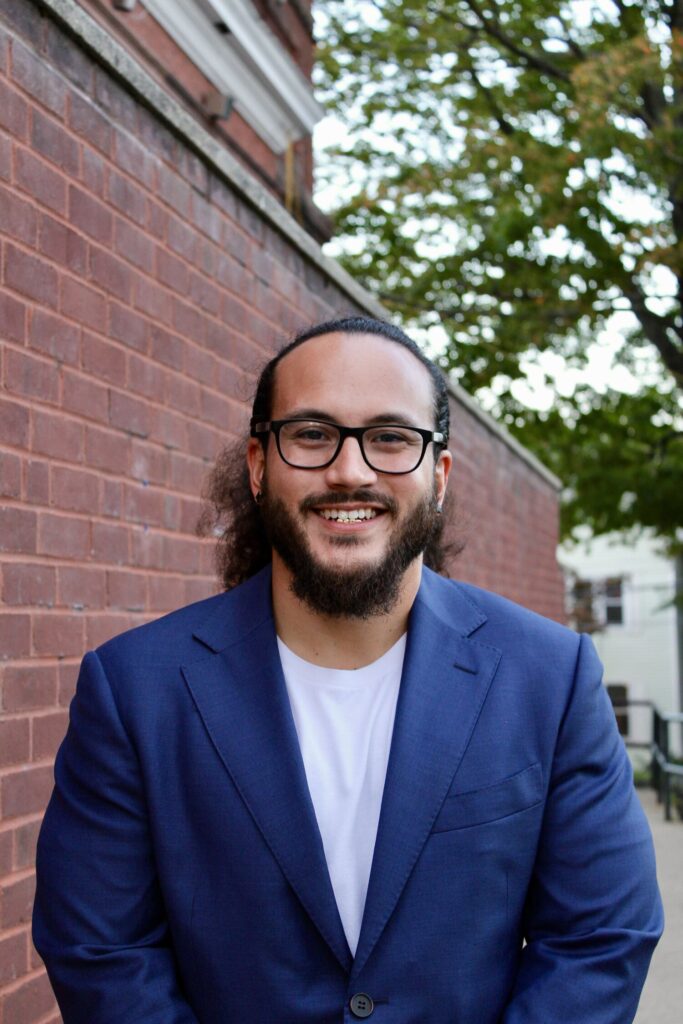
“If we reform the Senate Rules, then we can create a space where you don’t need a majority to govern; each member of the assembly has equal power to propose and vote on legislation,” says freshman State Senator Jonathon Acosta, who declined to support existing Senate leadership. “I’m committed to advocating for a more democratic process in our chamber and will vote in a manner that reflects that whenever possible.”
Acosta represents District 16, an area that includes Central Falls and neighborhoods in Pawtucket around Weeden Street and Mineral Spring Avenue. He was one of the seven Democrats who abstained from Senate leadership at the start of session last month, declining to support Dominick Ruggerio’s reelection bid. Prior to serving as a state senator, Acosta was a city councillor in Central Falls representing the first ward.
The interview has been edited for clarity and length.
Alex Kithes (Motif): Your home of Central Falls has struggled for many years, and has been routinely underserved by the state. You fought hard for your community in your time on the city council. How long were you on the council, and how do you see that work continuing, expanding
or shifting gears now that you’re at the State House?
Jonathan Acosta: I spent four years on the city council. During that time, I was the council appointee to the Juvenile Hearing Board. Part of my agenda in the General Assembly is to advocate for my community and show the rest of the state how our fates are intertwined.
The policies in our platform help CF and Pawtucket, but they also improve the lives of all Rhode Islanders. I also leave the council knowing that it is in very able hands. I know all the members of the council personally, and supported their campaigns.
AK: What inspired you to run for city council? What inspired your decision to run for RI Senate last year?
JA: As a teacher, I felt it was essential to be part of the community I worked in. To that end, I moved back to CF, started coaching wrestling in the community, and became more involved in local affairs. I met members of the local government who encouraged me to run for a seat that was opening up in my ward. The rest is history.
The leadup to my Senate race was very different. I think of it as the three-strike paradigm meets the left wave. The previous senator in this seat 1) didn’t publicly stand with our community when we were fighting for more resources in our public schools, 2) was nowhere to be found when we were marching and standing against the Wyatt Detention Center’s collaboration with ICE and President Trump’s criminalization of immigration, and 3) voted against codifying Roe v. Wade at the state level.
This election cycle saw the rise of a statewide coordinated effort to elect progressive candidates committed to a progressive agenda. I’m not a fan of charismatic leaders, but I am a superfan of clearly articulated policy agendas.
AK: You won 50.5% [of the vote] in a 3-way race, with a nearly 11% margin against the incumbent you were challenging. What do you believe are the reasons people came out and supported your campaign?
JA: Our team was part of a broader community-based election effort. On the state level, we’re known for our collaboration with the co-op, but it was our roots in local politics with established local leaders that mattered on the ground in Central Falls and Pawtucket. Many voters recognized us from our work in education and those who didn’t invariably knew someone who knew of our work. That word of mouth went a long way in getting a foot in the door and allowing us to articulate the bold agenda that people ultimately bought.
Of the three candidates in the Democratic primary, we worked at describing for folks the policy agenda that we would be bringing to the General Assembly. We put together a series of Facebook live sessions that allowed us to highlight different social problems and our proposed solutions.
AK: More broadly, this year saw a lot of progressive General Assembly wins around the state. What factors do you think were responsible for that? Do you see it as a sign of a changing political climate in Rhode Island?
JA: People in Rhode Island support a living wage, improving our education system, access to affordable healthcare, increasing taxes on the wealthy, and taking bold action against climate change, among others. For me, the Sanders primary win in 2016 was THE sign of a changing political climate in Rhode Island. The wins in 2020 are, I believe, a continued reflection of that.
AK: You abstained in the vote for Senate President at the start of session last month. What motivated this decision? Where do you see existing leadership has failed, and where would an alternative do better?
JA: There are many pressures going into a caucus leadership vote, but I was surprised to find that few (frankly, none) of them came from my actual constituents. The majority of the pressure comes from people in power and those vying for it.
I value deliberative democracy, I tried to hear everyone out. Incumbents mentioned access, fast track bills and committee appointments. Challengers offered lofty visions of a new way of governing, but lacked tangible reforms and a strong following.
I was forthcoming with my own position: I will vote for leaders who’ve outlined and made a public commitment to reforming the legislative process. I don’t want to simply switch power from one bloc to another. I’m a strong believer in — and fear — [Robert] Michels’ iron law of oligarchy. If we reform the Senate Rules, then we can create a space where you don’t need a majority to govern; each member of the assembly has equal power to propose and vote on legislation.
That means opening the door to votes on Republican legislation, far left legislation, moderate legislation, legislation from all sides. Neither candidate for Senate President was able to make this commitment in public before the vote. Therefore, I voted present.
Jeanine Calkin released a statement in which she declared in the first lines that she would reform Senate rules. As a result, I voted for her in the Majority Leader race. Did I think we would win? Nah. But, I’m committed to advocating for a more democratic process in our chamber and will vote in a manner that reflects that whenever possible.
At a personal and professional level, I don’t harbor any ill will toward Senators Dominick Ruggerio, Gayle Goldin or Michael McCaffrey. I look forward to working with them and learning more about their respective visions for the Senate rules.
AK: What are you planning on working on this term in the Senate?
JA: I plan on working on all the things we campaigned on. I rarely, if ever, answer this question head on. I think it pigeonholes you.
AK: You’re getting your doctorate in sociology at Brown University. How do you see your academic work aiding in your work at the State House?
JA: My academic work inspires many of my political positions and orientations. I’ve been studying poverty, neighborhoods and schools for the last few years, which gives me a different perspective than many of my peers on reforms aimed at addressing these. The analytical skills and reading speed from my academic training also come in handy in all of my Senate endeavors.

